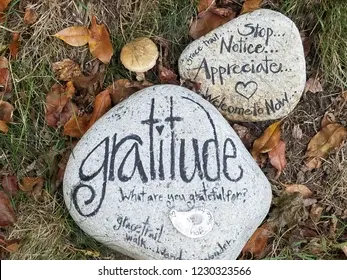Blog
Showing Appreciation
Appreciation is like gold for our relationships. We choose partners based on their character and other attributes that are admirable. They are qualities that we value and that make us feel loved and cherished. When we share these appreciations with our partner, it creates a deepened sense of vulnerability and connection in our relationships.
Sometimes, we appreciate by saying thank you to our partner for doing something kind, like, “Thanks for making my coffee this morning.” Acknowledging the things our partners do to show us love is important.
I want to challenge you though, to take your appreciation to a different level. Try telling your partner what quality he/she is demonstrating in these moments and why that is so valuable to you. If you want to make him/her feel loved and seen, this will definitely help! For example, you might say something like, “You are such a thoughtful partner. When I walked into the kitchen this morning and saw my coffee sitting there, I felt so loved. I was stressing about being late and here you go showing up for me when I really needed it. Thank you!” I do not know about you, but that would absolutely make me feel seen as a partner and motivate me to do more thoughtful things for my partner.
Oftentimes though we go through hard periods where we stop putting ourselves out there and we either share less or not at all. Many of us see our partners showing up for us or doing things to show love, but we just think about it, we do not share. Do you realize that this does not count? It is like earning a paycheck and never having it deposited into your account!
I would imagine during that same tough time we may have more negative thoughts about our partner and find that more criticism is coming out. This makes us even more guarded and unmotivated to share. BUT…we married an imperfect person who has flaws just like us. He/she needs to know that they are loved, even when we might not care for certain things they may be doing. I would hope that my partner would still see good in me and share it with me even if I may have wronged him/her at times. This is a great opportunity to rise above and be the person you would want your spouse to be.
What I am not saying here is that we just ignore the wrongdoings/hurts that our partner may cause us and just think and say positive things. If we are hurt, It’s important to go to him/her and share our perspective non judgmentally, how we feel and ask for our needs to be met. We can absolutely do this though, while still maintaining an appreciation for who he/she is, still respecting our relationship and showing up with integrity.
Spend some time today thinking about the great qualities that your partner possesses. Find a time to tell him/her what you appreciate and why that is so valuable to you. Enjoy the closeness and vulnerability in the moment.
How Well Do You Know Your Significant Other?
It is imperative in a healthy relationship to really spend time getting to know one another. We do this by asking meaningful questions and really listening. Gottman refers to this as Building Love Maps. Love Maps are essentially truly knowing who you are with.
When we first meet someone, most of us take time to ask questions in order to see if this person’s values, preferences, beliefs, etc… are going to align with our own. When we do this, we build love maps. These can be more surface level questions like, “What’s your favorite food?” or “What genre of music do you like to listen to?” We can also ask deeper, more open-ended questions like, “What is one of your favorite childhood moments?” or “What is something that you hope to achieve in the next 5 years?”
When we ask these questions, it is a beautiful opportunity to really tune into our partner and show interest in what has contributed to making that person who he/she is. It also allows us to continue asking other questions related to the original question to learn more. Curiosity is a wonderful thing!
Hopefully, once we hear this information, we store it in a way that allows us to tap into it later when the opportunity presents itself. This information is useful though as it gives us a way to really know this person.
We need to give ourselves permission to ask these questions. People may feel uncomfortable asking their partner about past experiences and hard moments. My hope though, is that we still do. A person’s experiences help create belief systems and core needs. If I don’t know these experiences, how do I truly know this person?
Another important aspect of Building Love Maps is continuing to update this information. People change over time, especially after developing in their careers, having children, experiencing losses, etc… We need to make sure that we are consistently sharing our experiences with one another to keep this information current. What used to be my preference or dream may no longer be and my partner needs to know this information.
Spend some time today asking your partner some questions about his/her world. Ask about their day. Ask about dreams, challenges, what brings him/her joy. Ask about his/her needs, favorite things, goals, etc… It will feel good to connect in this way as you solidify the foundation of your relationship.
Conflict is so hard! Why is that?
Have you ever wondered why getting into a conflict with another, especially your significant other, just does not go well very often? Many people want to avoid conflicts with their partners because they just don’t feel like it’s helpful to the relationship. Often, I’ll hear that people just feel like they never to get to resolution when they bring up issues and, it leaves them feeling pretty defeated. So, many times people just avoid altogether, and they really lose the opportunity to connect with their partner by navigating conflicts in a way that leads them to a deeper understanding of one another.
As a Certified Gottman Therapist, we know that there are 4 things that greatly contribute to why conflict does not go well in relationships. Gottman calls these the 4 Horsemen of the Apocalypse. Within the first 3 minutes of watching a couple have a conflict conversation, we can predict with 93% accuracy whether a couple will stay together or get divorced. That’s really scary if you think about it. This has to do with the fact that people are engaging in the 4 Horsemen during their conflicts. So, what are the 4 Horsemen and how do we get them out of our relationship? Great question!
The first of the 4 is Criticism. We also call it a harsh start-up. It can include bringing up an issue with blame, criticism, or harshness towards your partner. Oftentimes, the word “you” and “always" or "never” are part of these statements. There is a sense of judgement or condemnation at times that comes with these statements. Here are some examples of criticisms.
· You never do anything to help me out around the house.
· When was the last time you planned anything for us to do as a couple? You always put so much effort into your time with friends, but not with me.
· You are always eating junk and you never want to do any sort of exercise. You’re just a couch potato!
Did you know behind every criticism or complaint is a longing for a need to be met? When we bring up issues with criticism, it really makes it difficult for our partner to hear the need, because they are not able to hear us through the harshness. Research shows if you bring up an issue with a criticism, it really goes nowhere. Well, this makes a lot of sense to me. Hopefully, it does to you too.
So, how do we bring up issues then without criticizing our partner? The antidote to criticism is the soft approach, or soft startup. It mainly includes 3 parts:
· Describing the situation without judgement
· Expressing how you feel about it
· Asking for your need to be met
Here are some examples of soft startups that we could use instead of the criticisms above.
· We have family coming over this weekend for a get together and our house hasn’t really been cleaned in a long time. The thought of having people over in this condition makes me feel embarrassed and anxious. I really need your help this weekend getting everything ready for our visitors. This will greatly help me enjoy the time we get with them.
· I have been feeling really disconnected from you lately with all the busyness of our family, kids’ activities, church stuff, etc… I miss just hanging out with you and getting some quality time alone. I would really appreciate it if you could plan something special for us to do in the next couple of weeks so we connect.
· Lately we haven’t been eating well or getting any physical activity in, and it’s leaving me feeling run down and sad that I’m not taking care of my body the way I need to. I would really appreciate it if we can sit together and plan out some healthy meals for this week so we can get on track. I would also appreciate it maybe we could take a walk together as a family after dinner so we can get some physical activity in as well. I really want us to be a healthy family.
I don’t know about you, but I would love to hear my partner bring up issues this way. When the criticism isn’t present, it really allows us to listen and understand where our partner is coming from. Then, we can work together to come up with a solution, verses being stuck in defensiveness. See if you can try to bring up an issue using the soft approach with your partner. My hope is that you see the difference in response to being vulnerable and that you guys feel closer afterward.
Stay tuned to learn more about the rest of the 4 Horsemen.
What's the Next of the Four Horsemen?
So, in the last blog I shared, I talked about the first of the 4 horsemen, aka criticism. Hopefully, that helped you be more aware of how you bring up issues in your relationships with others. The 2nd of the 4 horsemen is defensiveness.
Did you know we’re really hard wired to be defensive. We take in information as people speak to us, and it sort of goes through this filter. We are able to let the stuff enter that fits with what we know to be true, but if something is said that goes against what we know to be (or feels wrong, misinterpreted, harsh, etc…), it’s like there’s a goalie there blocking it from entering. That “goalie” if you will, is our defensiveness. Here are some examples of defensive responses to the harsh startups that were shared in the last blog.
· What are you talking about? I helped you out yesterday when you asked me to take out the trash and finish raking the leaves.
· I don’t put more time into my friends than you. I’m here with you all the time. When was the last time you planned something? Why is it my job?
· Well, if you would just plan better meals then I wouldn’t be eating junk all the time. Plus, my job is physically exhausting, so you don’t even realize what kind of exercise I do get during the day.
Did you notice in those examples, that defensiveness can be statements, reversed accusations, and questions as well. It’s like we’re on trial and need to pull out anything to defend ourselves against the “falsehoods” that are being thrown at us.
So, what would happen though if we didn’t respond defensively. What if we learned that behind every criticism is a need, and when our partner doesn’t approach us the “right” way, we try to really look through the criticism to see what the need is. That’s one way we can battle defensiveness. That seems to be a difficult skill for most people, but it’s definitely something we need to be working on.
If our partner can start the conversation gently though, this better allows for influence, which is the antidote to defensiveness, to appear. Influence just means you can step out of yourself and try and to see what this other person is talking about (the situation, the feelings, and his/her needs). Influence is being able to understand how our partner’s perspective really makes sense, and it allows us to care about that perspective, which is shown through validation.
Some people fear influence. They think that if they listen to, understand and even validate their partner’s perspective, that they are at risk of giving up their own perspective. That’s not true, though. It just means you can step into your partner’s world as he/she shares whatever struggle they are facing. It really leads us to a deeper, closer connection with our partner.
Here are some examples of influence based on the soft approaches shared in the last blog:
· I can absolutely understand that having people in our house when it’s not clean and orderly could cause you embarrassment and anxiety. I really want you to enjoy yourself this weekend. I can’t help at this exact moment because I have to finish this work project by 3pm, but as soon as I’m done, I’ll clean the guest bedroom and bathroom.
· We really have been busy lately with all the different activities. I’ve been in survival mode, I guess. Thanks for bringing it up. I know that I used to plan fun things for us to do, and that was something we both enjoyed so much. I’ll start working on a plan for this weekend because you’re right. We do need time to connect. I miss spending time with you too.
· Yeah, I’ve noticed as well that our food choices lately haven’t been great, so I can understand why it’s leaving you feeling so run down. How about Saturday morning we get up and make a plan for the week? I’m happy to help cook some meals to keep us on track. My nights this week are crazy though, but a walk does sound nice. We need a change from the numbing out in front of the tv. Maybe we can find a night or 2 to get out for a walk.
Hopefully, after reading these examples, you thought about how nice it would be to have someone meet you with understanding (influence), instead of rejection or defensiveness. Try to be mindful this week of how you are responding to your partner’s bids for emotional connection and/or complaints.
Stay tuned for the next of the 4 horsemen!
The 3rd of the Four Horsemen
So, the last 2 entries I shared were on criticism and defensiveness. Hopefully, after reading those, you’ve been more aware of the words that you say to your significant other when you’re discussing issues in the relationship.
Today, I want to share about contempt. This is the marriage killer, aka the divorce predictor. It’s like acid on your relationship. Contempt is found when people are putting their partners down, acting as if they’re superior to their partner, name calling, eye rolling, basically sending a message of disgust. If you’ve ever been on the receiving end of contempt, you know exactly how hurtful it is. Yes, it’s still a method employed by many when engaging in conflict with someone they love.
Most people start allowing contempt to enter once they have had many failed attempts as resolving conflict. They have interpreted their partner’s behavior in negative ways and have created unfortunate conclusions about their partner. In moments of exasperation, they open the door to the ugliness of contempt.
Here are some examples of contempt:
· Seriously? How many times I have told you how to fold and put away the laundry? It doesn’t take a rocket scientist to do it. Our 5 year old could do a better job than you.
· You’re such an idiot. How did you think doing that would help the situation?
· You’re so stupid. Everyone knows you don’t have what it takes to do this well.
Even writing those statements felt painful! But… there is an antidote to contempt as well. It’s done by working on the 2nd level of the Sound Relationship House known as Fondness and Admiration. It occurs is small moments over time. This is a choice. We have to be able to see how harmful contempt is and be willing to have boundaries with ourselves to not engage in the relationship that way. So, we have to work on seeing our partner in a positive light. We have to work on trying to appreciate the good that is happening in the relationship. We have to speak respectfully to our partner, using the soft approach mentioned before. This is a step that takes mindfulness and willingness to be vulnerable, rather than guarded by using contempt.
Here are some examples of statements that could be said, rather than the ones filled with contempt, that are stated above.
· Baby, I’m feeling really frustrated. I worked really hard this weekend to get caught up on the laundry, and when I went into our room and saw it in a pile on the floor, it hurt my feelings. I need you to help make sure it gets put away, so that our clothes are clean and wrinkle free when it’s time to get dressed.
· Honey, the other day we spoke about our plan to make sure the kids got off the bus safely. I got a phone call from our neighbor after the bus dropped our kid off, and she said that our kid was walking through the neighborhood looking lost. I felt so scared. I need us to stick to our plan so that our kids are safe and I’m not in panic mode at work.
· We have 12 friends coming over on Saturday for a barbeque that we are hosting. I’m nervous about pulling this off because it was really hard to be in charge of everything last time. It would really reduce my stress level if we could ask everyone to bring something, so we’re just in charge of one thing. I think it’ll help us really be able to enjoy ourselves.
The statements above are really focused on the partner’s needs, verses how defective the other partner is. Will this work perfectly every time? Probably not, but at least they are honoring the boundary of respect in the relationship and it definitely increase the likelihood of getting their needs met.
The 4th Horsemen of the Apocalypse
Sometimes we navigate conflict well. We are mindful of how we are bringing up our issues, so that we increase our chances for being heard and understood. We can also be aware of our natural defensiveness, and truly try and empathize with and validate our partner. It’s amazing when we have this kind of success in our relationship.
Unfortunately, it doesn’t always go this way in our relationships. Perhaps we’ve been on edge and our capacity to have hard conversations isn’t where it needs to be. Or, maybe we’re feeling some righteous indignation and bring up issues harshly, warranting a defensive response from our partner. We’re just not getting anywhere. All of a sudden, we notice that our heartbeats are increasing. We just can’t seem to get our partner to understand what we’re trying to say. There’s harshness, avoidance, inflexibility and exasperation in our interactions. We’re feeling extremely frustrated and overwhelmed. This is not what we hoped for when bringing up this issue.
Welcome to the 4th of the Horsemen of the Apocolypse. It’s called Stonewalling. We just find ourselves shutting it down. We think, “Nothing I say at this point is going to help, so I’ll just be quiet.” Do you know there’s a reason why this happens? It’s physiological. Our typical human heart rate is between 65-75bmp. When we engage in conflict, it will increase at times. If it gets to 100bpm, this is what Gottman terms Flooding. The flooding process is not our friend. The prefrontal cortex of our brain basically goes offline. That’s the part of our brains we really need to tap into in a conflict. The prefontal cortex is the part of our brain that allows us to think rationally, problem solve, empathize, and understand. As this shuts down, adrenaline, cortisol and other stress hormones are released into the blood. Then, our right brain takes over. This part of our brain is going to engage in 1 of a few things: fight, flight, freeze, or fawn. None of these are great options for navigating conflict effectively.
So, what do we do about this? The antidote to Stonewalling is to take a time out. This needs to be done with love and care. If I were going to take a time out with my spouse, I would say something like, “ I love you and really want to hear and understand what you’re trying to tell me, but I’m flooded. I need to take a time out and calm myself down.” Or, I might say, “I’m having a hard time feeling understood right now. I feel flooded, and I need a break. Give me 20 minutes or so to calm myself down, and I’ll come back so we can talk about this again.”
We have to take this time out to be able to self soothe enough to get our prefrontal cortex back online. Research shows it takes about 20-30 minutes for this de-escalation process to be successful, as long as we’re not ruminating about the conflict during this time. During my 20 minute break, I might go outside and listen to the wind chimes, do deep breathing exercises, pray/meditate, play a game on my phone, or even just lay on my bed and close my eyes.
To ensure trust is maintained, time outs can’t be used as an avoidance technique. When people use them to just end the conversation, it can cause hurt and anxiety in their partner. This can lead to pursuing of their partner during flooding, instead of respecting the boundary of the needed time out.
What’s the next important step to making sure the time out process is successful? Go back to your partner and try to discuss the issue again, assuming that your heartrate is back in the normal range. This builds trust, which is vital for great conflict resolution. If you realize that you’re starting to flood again, take another time out and self soothe. We want to protect our emotional bank account.
I hope this information was helpful. Learning to maintain a calm nervous system during a conflict conversation will greatly increase the likelihood of a successful outcome.








Share On: